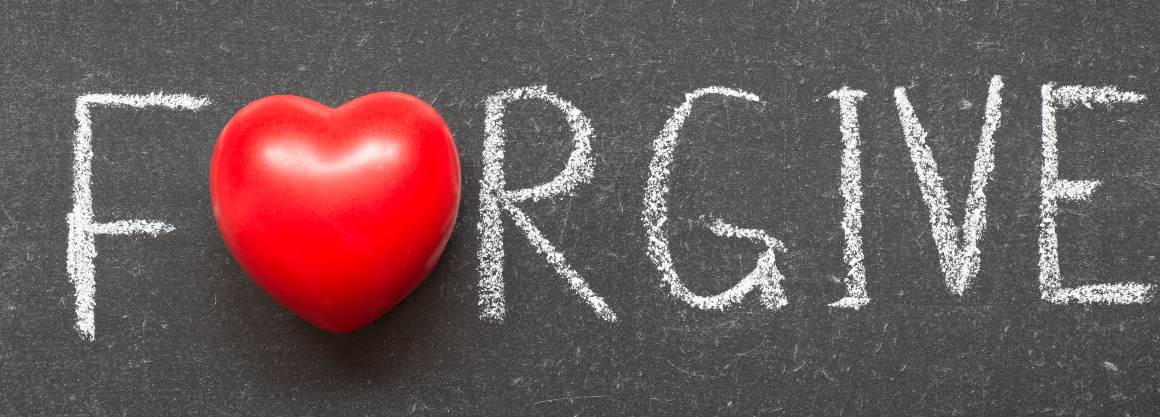Forgive Yourself for Imperfection
Published:
Forgiving yourself for imperfection is crucial for fostering self-compassion and promoting mental well-being. Perfectionism can lead to obsessing over small details and expecting too much from yourself and others. There are three types of perfectionism: self-perfectionists, socially prescribed perfectionists, and other-oriented perfectionists.
Contents:
- Key Takeaways:
- Understanding Perfectionism and its Effects
- The Power of Self-Forgiveness
- Extending Forgiveness to Others
- Key Steps in Self-Forgiveness
- The Benefits of Self-Forgiveness
- The Process of Letting Go and Moving Forward
- Overcoming Challenges in Self-Forgiveness
- Conclusion
-
FAQ
- Q: Why is forgiving yourself for imperfection important?
- Q: What are the different types of perfectionism?
- Q: How does self-forgiveness contribute to personal growth?
- Q: Is self-forgiveness about condoning behavior?
- Q: What are the key steps in self-forgiveness?
- Q: What are the benefits of self-forgiveness?
- Q: How can self-forgiveness be balanced with accountability?
- Q: How can guilt be released and personal growth be achieved?
- Q: What are the challenges in self-forgiveness?
- Source Links

Forgiveness is essential for overcoming perfectionism. It involves acknowledging mistakes, learning from them, and practicing self-love. Forgiveness also extends to forgiving others for their imperfections. Self-forgiveness is not about condoning behavior but accepting it, showing remorse, making amends, and focusing on personal growth.
Embracing emotions, taking responsibility, treating oneself with kindness, expressing remorse, making amends and apologizing, and learning from mistakes are key steps in self-forgiveness. Self-forgiveness can lead to mental and physical well-being, improved relationships, and personal growth. However, it's crucial to avoid overlooking the needs and feelings of those affected by one's actions while practicing self-forgiveness.
Letting go of guilt and forgiving oneself takes time and self-compassion. It's important to focus on what has been learned and how to make better choices in the future. Struggling to forgive oneself might hinder personal growth, damage self-esteem, or undermine self-image. Seeking professional help can be beneficial in processing feelings, developing coping skills, and avoiding similar mistakes in the future.
Key Takeaways:
- Forgiving yourself for imperfection is crucial for fostering self-compassion and promoting mental well-being.
- Perfectionism can lead to obsessing over small details and expecting too much from yourself and others.
- Types of perfectionism include self-perfectionists, socially prescribed perfectionists, and other-oriented perfectionists.
- Forgiveness involves acknowledging mistakes, learning from them, and practicing self-love.
- Self-forgiveness is not about condoning behavior but accepting it, showing remorse, making amends, and focusing on personal growth.
Understanding Perfectionism and its Effects
Perfectionism can have a negative impact on our mental health and well-being, leading to excessive self-criticism and unrealistic expectations. When we strive for perfection, we often find ourselves obsessing over small details and constantly feeling like we're not good enough. This mindset can be detrimental to our self-esteem and overall happiness.
There are three main types of perfectionism: self-perfectionists, socially prescribed perfectionists, and other-oriented perfectionists. Self-perfectionists set unrealistically high standards for themselves and are constantly striving for flawlessness. Socially prescribed perfectionists feel immense pressure from external sources, such as society, to meet certain criteria of perfection. Other-oriented perfectionists expect perfection not only from themselves but also from others, often leading to strained relationships.
Forgiveness is a crucial step in overcoming perfectionism and embracing self-acceptance. It involves acknowledging our mistakes, learning from them, and practicing self-love. Forgiveness is not about condoning or excusing our behavior; rather, it's about accepting it, showing remorse, making amends, and focusing on personal growth. By forgiving ourselves for our imperfections, we can break free from the cycle of self-criticism and move towards self-compassion.
Letting Go of Perfectionism: Strategies for Self-Acceptance
- Embrace your flaws: Remember that no one is perfect, and that's okay. Embrace your imperfections as part of what makes you unique.
- Set realistic expectations: Instead of aiming for perfection, set achievable goals that allow room for growth and learning.
- Practice self-compassion: Treat yourself with kindness and understanding. Be gentle with yourself when you make mistakes and remind yourself that it's okay to be imperfect.
- Let go of comparison: Avoid comparing yourself to others and focus on your own journey. Remember that everyone has their own strengths and weaknesses.
By embracing our flaws, setting realistic expectations, practicing self-compassion, and letting go of comparison, we can begin to let go of perfectionism and cultivate a sense of self-acceptance. It's an ongoing process that takes time and effort, but the rewards are worth it. Remember, you are deserving of love and acceptance, just as you are.
| Type of Perfectionism | Description |
|---|---|
| Self-perfectionists | Set unrealistically high standards for themselves and strive for flawlessness. |
| Socially prescribed perfectionists | Feel immense pressure from external sources, such as society, to meet certain criteria of perfection. |
| Other-oriented perfectionists | Expect perfection not only from themselves but also from others, often leading to strained relationships. |
The Power of Self-Forgiveness
Self-forgiveness is an essential component of personal growth and cultivating self-compassion. It involves acknowledging our mistakes, learning from them, and practicing self-love. By forgiving ourselves, we let go of the burden of guilt and embrace a journey of healing and self-discovery.
One of the key steps in self-forgiveness is embracing our emotions. It is important to allow ourselves to feel the pain, regret, and disappointment that may arise from our actions. By acknowledging and accepting these emotions, we can begin to process and work through them, paving the way for healing and growth.
Taking responsibility for our actions is another crucial aspect of self-forgiveness. It requires us to own up to our mistakes and recognize the impact they may have had on ourselves and others. By taking responsibility, we demonstrate accountability and a willingness to make amends.
| Key Steps in Self-Forgiveness: | |
|---|---|
| 1. Embrace your emotions | Allow yourself to feel and process your emotions related to the situation. |
| 2. Take responsibility | Own up to your mistakes and recognize their impact on yourself and others. |
| 3. Treat yourself with kindness | Show compassion, understanding, and kindness towards yourself throughout the forgiveness process. |
| 4. Express remorse | Apologize and express genuine remorse to those affected by your actions. |
| 5. Make amends | Take appropriate actions to repair any harm caused and make amends where possible. |
| 6. Learn from mistakes | Reflect on the lessons learned and commit to personal growth and positive change. |
Practicing self-forgiveness can have profound impacts on our mental and physical well-being. It frees us from the burdens of self-criticism and allows us to cultivate self-compassion. By forgiving ourselves, we create space for personal growth, improved relationships, and a more fulfilling life.
"Forgiveness is not always easy. At times, it feels more painful than the wound we suffered, to forgive the one that inflicted it. And yet, there is no peace without forgiveness." - Marianne Williamson
Extending Forgiveness to Others
Forgiveness extends beyond ourselves - it involves forgiving others for their imperfections and fostering healthy relationships. When we hold onto grudges or refuse to forgive others, it creates a barrier that prevents us from fully experiencing love and connection. By extending forgiveness, we free ourselves from resentment and create space for growth, understanding, and compassion.
Forgiving others is not about condoning their behavior or letting them off the hook. It is about acknowledging that everyone makes mistakes and has their own struggles. When we forgive, we choose to let go of anger and resentment and instead focus on healing ourselves and building healthier relationships.
"Forgiveness is the fragrance that the violet sheds on the heel that has crushed it." - Mark Twain
Practicing self-love and self-compassion can help us extend forgiveness to others. When we recognize our own imperfections and the need for forgiveness, it becomes easier to empathize with others and understand that they too may be struggling. By fostering self-love, we create a foundation of compassion that allows us to view others with empathy and forgiveness.
| Benefits of Extending Forgiveness to Others: |
|---|
| Builds stronger and healthier relationships |
| Reduces stress and resentment |
| Encourages personal growth and self-improvement |
Key Steps in Self-Forgiveness
Self-forgiveness involves a series of important steps that can lead to personal growth and inner peace. It begins with embracing emotions and allowing ourselves to acknowledge and validate our feelings. By giving ourselves permission to feel and express our emotions, we can start the healing process.
Another crucial step in self-forgiveness is taking responsibility for our actions. This means owning up to our mistakes and understanding the impact they may have had on ourselves and others. By accepting accountability, we can learn from our past behaviors and make amends where necessary.
Treating oneself with kindness is an essential aspect of self-forgiveness. Showing compassion and understanding towards ourselves allows us to let go of self-judgment and embrace self-acceptance. It involves practicing self-care, engaging in activities that bring us joy, and prioritizing our well-being.
"Forgiveness is the fragrance that the violet sheds on the heel that has crushed it." - Mark Twain
Expressing remorse and making amends are also key steps in the process of self-forgiveness. By apologizing to ourselves and others, we acknowledge the pain we may have caused and demonstrate our commitment to growth and change. Making amends helps to repair relationships and fosters forgiveness from others.
"To err is human; to forgive, divine." - Alexander Pope
Lastly, learning from our mistakes is vital for personal growth. It involves reflecting on the lessons gained from our experiences and using them as stepping stones for future development. By understanding our triggers and patterns, we can make better choices and avoid repeating similar mistakes.
Summary
In summary, self-forgiveness is a transformative process that requires embracing emotions, taking responsibility, treating oneself with kindness, expressing remorse, making amends, and learning from mistakes. By following these key steps, individuals can cultivate personal growth, find inner peace, and foster healthy relationships.
The Benefits of Self-Forgiveness
Self-forgiveness has a wide range of benefits, including improved mental well-being, stronger relationships, and personal growth. When we forgive ourselves for imperfections, we free ourselves from the burden of guilt and shame, allowing us to experience greater peace and happiness.
Forgiving oneself promotes mental well-being by reducing stress, anxiety, and depression. Holding onto past mistakes and constantly berating ourselves can have a detrimental effect on our mental health. By practicing self-forgiveness, we release negative emotions and create space for self-compassion and self-love.
Forgiving ourselves also contributes to stronger relationships. When we are able to acknowledge our flaws and mistakes, it becomes easier to accept the imperfections in others. By extending forgiveness to ourselves, we cultivate empathy and understanding, fostering healthier and more meaningful connections with those around us.
Self-Forgiveness and Personal Growth
Self-forgiveness is not a sign of weakness, but rather a powerful tool for personal growth.
Self-forgiveness is a catalyst for personal growth. It allows us to learn from our mistakes and make positive changes in our lives. By acknowledging our shortcomings and taking responsibility for our actions, we can develop greater self-awareness and make better choices in the future. Self-forgiveness provides us with the opportunity to let go of past regrets and focus on personal and emotional growth.
However, it's important to strike a balance between self-forgiveness and accountability. While forgiving ourselves is crucial, we must also consider the needs and feelings of those affected by our actions. It's essential to show remorse, make amends, and work towards becoming a better person.
| Benefits of Self-Forgiveness |
|---|
| Improved mental well-being |
| Stronger relationships |
| Personal growth |
In conclusion, self-forgiveness is a powerful tool that can positively impact our mental well-being, relationships, and personal growth. By embracing forgiveness and letting go of past mistakes, we open ourselves up to a brighter and more fulfilled future.
While practicing self-forgiveness, it's essential to strike a balance between forgiving oneself and being accountable for one's actions. Avoiding overlooking the needs and feelings of others is crucial in this process, as it ensures that self-forgiveness is not at the expense of those affected by our actions. It requires empathy and self-compassion to acknowledge the impact of our mistakes on others while working towards personal growth. Self-compassion plays a vital role in maintaining this balance. It allows us to treat ourselves with kindness and understanding, even as we acknowledge our imperfections. By embracing self-compassion, we can cultivate a sense of empathy not only towards ourselves but also towards others, fostering stronger relationships and a deeper understanding of human fallibility. In this journey of self-forgiveness and accountability, it's important to remember that forgiving oneself does not mean condoning one's actions. Instead, it involves accepting responsibility, showing genuine remorse, and making amends for any harm caused. Taking these steps demonstrates a commitment to personal growth and a willingness to learn from mistakes. A complete table summarizing the steps involved in balancing self-forgiveness and accountability:| Steps in Balancing Self-Forgiveness and Accountability |
|---|
| 1. Acknowledge the impact of your actions on others |
| 2. Show genuine remorse and take responsibility |
| 3. Make amends and apologize, if necessary |
| 4. Focus on personal growth and learning from mistakes |
| 5. Practice self-compassion and treat yourself with kindness |
| 6. Avoid repeating similar mistakes in the future |
The Process of Letting Go and Moving Forward
Letting go of guilt and embracing personal growth are vital aspects of the self-forgiveness journey. Forgiving oneself for imperfection requires a conscious effort to release the weight of past mistakes and focus on the present moment. It is about acknowledging the lessons learned and using them as stepping stones for personal growth.
In the process of self-forgiveness, it is important to embrace emotions and allow oneself to feel the pain, regret, and disappointment associated with past actions. This emotional acceptance is a powerful catalyst for healing and moving forward. By acknowledging and processing these emotions, one can begin to let go of the guilt that may have been weighing heavily on their shoulders.
Taking responsibility for one's actions is another crucial step in self-forgiveness. Accepting accountability and owning up to the consequences of one's behavior is an act of maturity and growth. This acknowledgment allows for a deeper understanding of the impact one's actions may have had on others and fosters empathy and compassion.
Treating oneself with kindness throughout the self-forgiveness journey is of utmost importance. It involves practicing self-compassion and replacing self-judgment with self-love. Just as we would offer forgiveness and understanding to others, it is essential to extend the same compassion to ourselves. Through acts of self-care and nurturing, we can cultivate a healthier relationship with ourselves and foster personal growth.
| Key Steps in Self-Forgiveness |
|---|
| 1. Embrace emotions and allow yourself to feel |
| 2. Take responsibility for your actions |
| 3. Treat yourself with kindness and practice self-compassion |
By following these key steps and engaging in the process of self-forgiveness, individuals can experience profound personal growth and liberation from the burden of guilt. Remember, self-forgiveness is not about erasing the past but about learning from it, making amends, and embracing a future filled with self-compassion and personal development.
Overcoming Challenges in Self-Forgiveness
Forgiving oneself can be challenging, but seeking support and guidance can greatly aid in the process. When struggling to forgive oneself, it is important to acknowledge the emotions that arise and not suppress them. Embracing these emotions allows for self-reflection and understanding, which can be instrumental in the forgiveness journey.
One effective strategy is to seek professional help from therapists or counselors who specialize in self-forgiveness and personal growth. These professionals offer a safe space to explore and process difficult emotions, helping individuals develop effective coping mechanisms and strategies for self-forgiveness. They can also provide valuable insights and perspectives that may not be easily accessible when navigating the process alone.
Another helpful approach is to engage in self-care practices that promote self-compassion and self-acceptance. This can include activities like journaling, practicing mindfulness or meditation, and engaging in hobbies that bring joy and fulfillment. Taking the time to nurture oneself and prioritize mental and emotional well-being can aid in the journey toward self-forgiveness.
Lastly, it is crucial to remember that forgiving oneself is a process that takes time. It is not a linear journey, and setbacks may occur along the way. However, by remaining committed to personal growth and seeking support when needed, individuals can overcome challenges and ultimately find healing and self-forgiveness.
| Key Points: |
|---|
| Seek support and guidance from therapists or counselors specializing in self-forgiveness. |
| Embrace difficult emotions and use them as a catalyst for self-reflection and understanding. |
| Engage in self-care practices that prioritize self-compassion and self-acceptance. |
| Remember that self-forgiveness is a process that takes time, and setbacks may occur. |
Conclusion
Forgiving yourself for imperfection and embracing self-compassion are crucial for personal growth and overall well-being. Perfectionism, with its obsession over small details and unrealistic expectations, can have a detrimental effect on mental health and relationships. Understanding the three types of perfectionism - self-perfectionists, socially prescribed perfectionists, and other-oriented perfectionists - helps in recognizing its negative impact on our lives.
Self-forgiveness involves acknowledging our mistakes, learning from them, and practicing self-love. It is not about condoning behavior, but accepting it, showing remorse, making amends, and focusing on personal growth. By extending forgiveness to others for their imperfections, we cultivate compassion and create space for healthier relationships.
Key steps in self-forgiveness include embracing our emotions, taking responsibility for our actions, treating ourselves with kindness, expressing remorse, making amends and apologizing, and learning from our mistakes. This process leads to improved mental and physical well-being, enhanced relationships, and personal growth.
However, it is important to strike a balance between self-forgiveness and accountability. While forgiving ourselves, we must not overlook the needs and feelings of those affected by our actions. It requires self-compassion, understanding that growth and healing take time, and focusing on making better choices in the future.
Struggling to forgive oneself can hinder personal growth, damage self-esteem, and undermine self-image. Seeking professional help to process emotions, develop coping skills, and gain support can be beneficial in overcoming these challenges. Letting go of guilt and forgiving ourselves is a process that requires patience, self-compassion, and a commitment to personal growth.
In conclusion, forgiving yourself for imperfection and fostering self-compassion are essential for personal growth and overall well-being. By embracing self-forgiveness, we can release the burden of perfectionism, cultivate healthier relationships, and create a path towards a more fulfilling life.
FAQ
Q: Why is forgiving yourself for imperfection important?
A: Forgiving yourself for imperfection is essential for mental health and well-being. It allows you to let go of unrealistic expectations and embrace self-compassion.
Q: What are the different types of perfectionism?
A: The three types of perfectionism are self-perfectionists, socially prescribed perfectionists, and other-oriented perfectionists.
Q: How does self-forgiveness contribute to personal growth?
A: Self-forgiveness involves acknowledging mistakes, learning from them, and practicing self-love. It can lead to personal growth and improvement.
Q: Is self-forgiveness about condoning behavior?
A: No, self-forgiveness is not about condoning behavior. It is about accepting it, showing remorse, making amends, and focusing on personal growth.
Q: What are the key steps in self-forgiveness?
A: The key steps in self-forgiveness include embracing emotions, taking responsibility, treating oneself with kindness, expressing remorse, making amends, and learning from mistakes.
Q: What are the benefits of self-forgiveness?
A: Self-forgiveness can lead to improved mental and physical well-being, enhanced relationships, and personal growth.
Q: How can self-forgiveness be balanced with accountability?
A: It's important to avoid overlooking the needs and feelings of those affected by one's actions while practicing self-forgiveness. Balancing self-forgiveness with accountability requires self-compassion.
Q: How can guilt be released and personal growth be achieved?
A: Letting go of guilt and focusing on personal growth can be achieved by acknowledging what has been learned and making better choices in the future.
Q: What are the challenges in self-forgiveness?
A: Struggling to forgive oneself can hinder personal growth, damage self-esteem, and undermine self-image. Seeking professional help can be beneficial in processing emotions and developing coping skills.


















